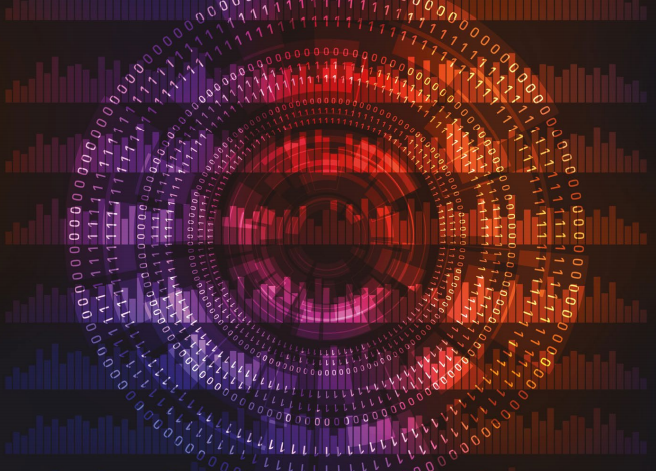The Digital Turn in Science and the Humanities
The DFG followed the prompt of its Senate to systematically and fundamentally address the digital turn in science and the humanities so that it could better assess and monitor the impacts that digital technologies are having on them.
The DFG published an impulse paper in October 2020 in which it depicted the views of science and the humanities on the significant impacts that the digital turn is exerting within research and on the areas of activity that result from this concerning the DFG's funding activities and its policy and social advisory function. Following publication of the impulse paper, the Senate commissioned the DFG Head Office to implement the proposed measures in the four areas of activity set out in the paper. To this end, the strategy project “The Digital Turn in the Sciences and Humanities” was set up at the DFG Head Office.
What’s New
Call for Proposals “Industry Data for Research” to Support Research Data Cooperation
To the call for proposal(interner Link) | Further Informatio(interner Link)
DFG Positions, Guidelines and Recommendations
The DFG impulse paper succinctly describes the impacts and challenges of the digital turn in science and the humanities, as well as outlining areas of activity for the DFG as the central, self-governing organisation that funds research in Germany. “The paper brings together a wide range of ideas and will serve as a compass for us in the years to come. The findings and recommendations will flow into the development of new funding programmes just as they will into designing the best conditions for DFG research”, says DFG President Professor Katja Becker and stresses: “The opportunities offered by this digital turn are of central importance to continuous developments in science and the humanities, so the latter should, in their own interest, be actively involved in tackling the associated challenges.”
- Impulse paper: "The Digital Turn in the Sciences and Humanities(externer Link)
- Guidelines for Safeguarding Good Research Practice (Code(interner Link)
- Position paper on the funding of information infrastructures for science and the humanities (in German only(Download)
- Handling of research dat(interner Link)
- Handling of research softwar(interner Link)
- DFG Statement on the Establishment of cOAlition (interner Link)
- CoAR(interner Link)
- DFG Open Science Positionin(interner Link)
- Membership of ReSA (in German only(interner Link)
- National Research Data Infrastructur(interner Link)
Background
The DFG sees the term “digital turn” as comprising all relevant changes and impacts in epistemic, ethical, legal, technical, infrastructural, organisational, financial and also social terms which arise from the development and use of digital technologies in science and the humanities.
Despite the diverse impacts of the digital turn in science and the humanities, the DFG believes these will not lead to a fundamental change in the requirements for scientific excellence, but above all include the emergence of new – digital – research practices, which can also be subjected to epistemic reclassification in the respective subject-specific context.
The digital turn is not a phenomenon that is restricted to scientific research: digital technologies and processes are relevant in all areas of society and the economy. The widespread use and development of digital technologies alter the relationship between publicly funded research and that of other stakeholders – the global internet corporations, for example. It is crucial in this situation for science and the humanities to grasp the opportunities afforded by the digital turn and actively commit to assessing and overcoming the challenges according to their own principles and in their own interests.
In a science-led discussion process over recent years, the DFG has fostered dialogue on the issue of the digital turn in the sciences and humanities in connection with topics such as the Handling of Research Dat(interner Link), as well as offering additional specific funding opportunities (e.g. Sustainability of Research Software (in German only(interner Link), Artificial Intelligenc(interner Link), funded projects through calls for research software: 1st Call for Proposal(externer Link) / 2nd Call for Proposal(externer Link)). In the future, too, the DFG is committed to pursuing the following four areas of activity so as to ensure that science and the humanities can help shape the digital turn; for details, see the impulse paper:
- Subject-specific and interdisciplinary discourse
- Statutory bodies and competencies of the DFG
- Funding programmes
Since the successful completion of the restructuring project “The Digital Turn in the Sciences and Humanities” in March 2020 and the publication of the DFG’s impulse paper of the same title in October 2020, the Senate’s mandate is have the DFG Head Office implement the proposed measures in the four areas of activity as set out in the impulse paper.
The purpose of the DFG’s strategic project “The Digital Turn” is to help shape this implementation process. Proceeding in a coherent and systematic manner, the DFG seeks to take on a formative role in this dynamic field so as to provide the best possible support for the research community in meeting both known challenges and those yet to emerge.
The main objective of the project is to implement measures to help shape the digital turn in the sciences and humanities within the four areas of activity.
Contacts at the DFG Head Office:
The Senate has set up an ad hoc working group (in German only(interner Link) so as to involve the DFG’s statutory bodies in the work being done under the strategic programme on the digital turn (PDW) in a coherent and systematic manner, thereby enabling the DFG as a whole to play a formative role in this dynamic field. In addition to providing conceptual support for the strategic programme, the working group is to consider the needs of the research community with regard to the digital turn in order to establish a basis for further action in the area of research policy on the part of the Executive Committee and Senate.
DFG Funding Opportunities
The DFG funding opportunities relating to the digital turn in science and the humanities involve two different approaches: firstly, research funding whose central objective is to support outstanding academic research, and secondly infrastructure funding, which includes information infrastructures and technologies as well as instrumentation and instrumentation technologies.
- Research grants: the Research Grants Programme (Guideline 50.0(interner Link)) provides numerous options to fund projects relating to the digital turn in the sciences and humanities. A research grant enables everyone who has completed their academic training to conduct a research project that is limited in time and scope – at any time and irrespective of the subject.
- Coordinated programmes: there is frequently a need for larger consortia when addressing interdisciplinary issues as they arise in the context of the digital turn. Suitable funding programmes in such cases are those for Collaborative Research Centres (CRCs) (Guideline 50.0(interner Link)) and Research Training Groups (RTGs) (Guideline 50.0(interner Link)), in particular in the case of predominantly locally based consortia.
- Priority Programmes: One particular feature of Priority Programmes is nationwide collaboration between participating researchers. Priority Programmes (Guideline 50.0(interner Link)) can be set up by the DFG Senate if the coordinated funding promises benefits in the relevant field of research. The Senate negotiates once a year on the setting up of Priority Programmes for proposed initiatives arising in science and the humanities.
- Scientific Library Services and Information System(interner Link):
the objective of this funding stream is to create a coordinated system of information infrastructures for science and the humanities; it aims to provide users free and extensive access to research information and to link research information and data. Project proposals under the e-Research Technologies funding programme (Guideline 12.1(interner Link)) can be used to address numerous challenges and needs arising as a result of the digital turn. The Information Infrastructures for Research Data programme (Guideline 12.1(interner Link)) and the National Research Data Infrastructure (NFDI(interner Link) are relevant to the topic of research data. - Research instrumentation and information technolog(interner Link):
Successful research requires access to costly and specific technological instrumentation. The DFG funds project-specific instrumentation within its general research funding. In the case of major research instrumentation of an infrastructural nature that is required for multiple research projects, it is possible to submit a funding proposal to the DFG under the programme Major Research Instrumentation (as per Article 91b of the Basic Law(interner Link). In addition to the established programmes for instrumentation and IT infrastructure funding, three new programmes relating to instrumentation research funding were included in the DFG funding portfolio at the end of 2017. For example, the programme New Instrumentation for Researc(interner Link) is designed to enable researchers themselves to develop new instrumentation for use in science and the humanities, including prototypes.
In the case of some projects, it is not always possible or useful to draw a clear distinction between research and the development of information infrastructure. For this reason, in the case of projects involving both extensive research and the development/provision of scientific information and/or information infrastructures, it is possible to submit a proposal for a so-called “bridge project(interner Link).

